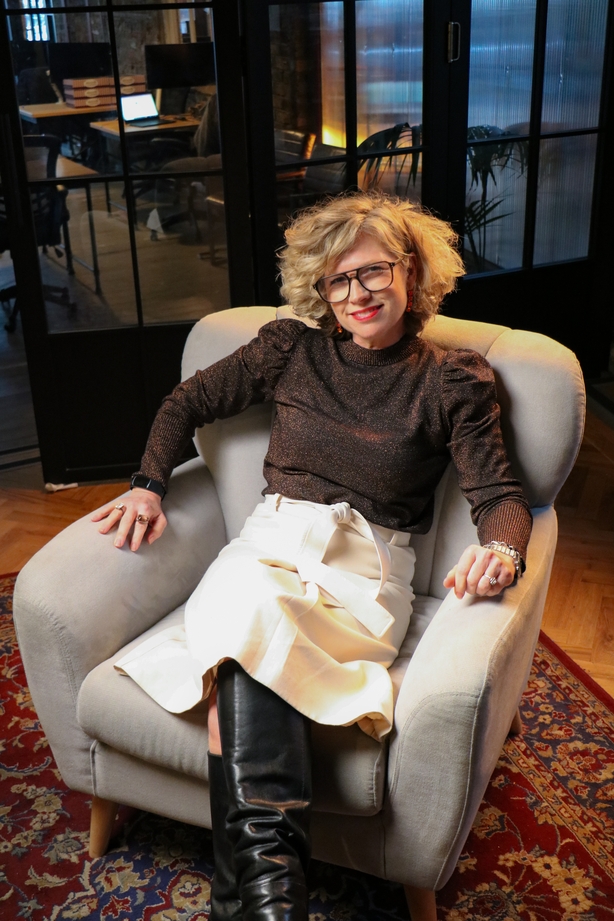Sonya Lennon says that she had an "unusual background" when it comes to money.
"My dad worked in the bank his whole career", the entrepreneur and one half of design duo Lennon Courtney, with Brendan Courtney, says. "So when we were kids, it was like 50% of your pocket money goes into savings, and that's just the rule of thumb."
Aside from a brief "rebellious phase" when she didn't do that, Lennon internalised that lesson and in the years since has founded Work Equal, an initiative that brings services and programmes to help people (re)entering the workplace to reach sustained economic independence.

Despite this, she says, "there's been times in my career when things have been really, really tough, moving from a freelancer into an entrepreneurial space" that "there are times when I can't remember how I contributed to the mortgage. I really can't. I know I did, but I'm not sure how I did it".
Now, with more on her plate in many ways, she says that her "understanding of what's important has changed".
"And my desire to spend a lot of money on things has decreased. It's become much more distilled in terms of where I get my value and my joy."
Central to her philosophy about money is the importance of pensions, something she's had a similarly varied relationship with as she "forgot" about her first one when she went freelance and has since undertaken work to promote women starting pensions through her podcast The Ultimate Guide for Women and Pensions, with Standard Life.
"There are a disproportionate amount of women in precarious work, in part-time work, in unstable work", she says. "And there's a two-way into those low paid roles because of the flexibility and the duties of childcare.
"We really need to look at, first of all, how we're positioning those low-paid roles because they're low paid, but they're very high value in society. And secondly, we need to look at how we share the duties between parents and stop assuming that women are going to take these roles."
Among the challenges blocking more women from embracing pensions, Lennon says, is our persistant reticence "to talk about money, to talk about earnings, to talk about our own value in Ireland".
"And I don't think it's just women, but I think it's definitely more women than men."
The other, more obvious, obstacle for many women is the relentless cost of living crisis. "The reality of it is if you are trapped in a cost of living crisis, you're not thinking about what you can put away. You're thinking about putting food on the table", she says.
Reconsidering the value of their work and skills is key for speaking to women about pensions, she adds: "What we've seen in the research through Standard Life is that women are more fearful. They're not talking about pensions as much. They don't have the pension provisions that men have. And when they get to a certain point, they nearly think it's too late to do anything about it. So they ostriche."
She later adds that pensions and money can be "an unspoken pain point for a lot of women". "They know they should be doing something, but they haven't done something. I'm a firm believer in the power of permission. I think if somebody gives you permission to do something, suddenly you feel unlocked."
Instead of putting your head in the sand, Lennon recommends finding some way to put plans into action. "The one thing that makes a difference in this scenario is action. Thinking about it, ruminating about it, intending to do it, really won't get you anywhere."
Just as with sourcing the best plumber, the best vet, the best place to buy vintage clothes or the best butcher around, Lennon suggests starting your pension journey by finding the kind of person you feel most comfortable talking about money with. Very often, that's someone close to you that you trust.
"Everybody has a pal who has the best hairdresser, the best doctor, the best butcher, whatever it is. Go and talk to the savvy friend, because if that's your savvy friend, she's more than likely going to have had a conversation with a financial adviser.
"I always think if you're getting a recommendation from somebody who speaks your language, who's on your wavelength, it's much more powerful."


